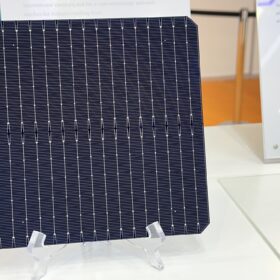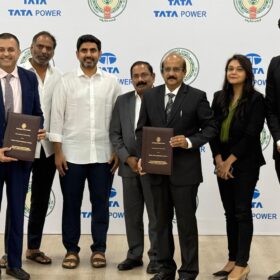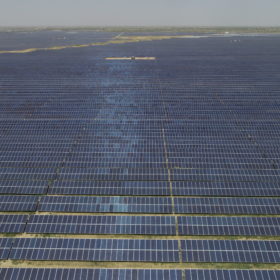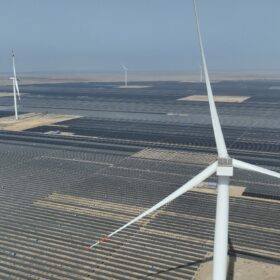The tenth meeting of the Standing Committee of the International Solar Alliance (ISA) Assembly was held in New Delhi on 18 July 2024, under the chairpersonship of the President of the ISA Assembly, Mr Pralhad Joshi, the Hon’ble Union Minister of India for New and Renewable Energy & Consumer Affairs, Food and Public Distribution. The French Republic, as Co-President of the ISA Assembly, was the co-chair of the meeting. The meeting was conducted in a hybrid mode, with representatives from Denmark, Sweden, Venezuela, Tuvalu, Mali, Somalia, and Bangladesh actively engaged in the proceedings.
The meeting set an extensive agenda for the year addressing ISA programmes, projects, and initiatives. These will be deliberated regionally through its standing committees and synthesised to be presented at the seventh session of the ISA Assembly, scheduled for November 2024, for conclusive decisions.
In his opening remarks, the President of the ISA Assembly expressed his sincere gratitude to the Co-President and Vice-Presidents for their time, effort, dedication, and invaluable contributions to ISA’s mission. He congratulated the Alliance on the remarkable achievement of having 100 Member Countries and 19 Signatory Countries join the Alliance. He said, “This milestone underscores the growing global recognition and support for solar energy as a critical solution to addressing our energy needs sustainably and responsibly.”
Underlining the contribution of ISA, he said, “The success of solar energy deployment is not solely dependent on technological advancements. An efficient and reliable supply chain is essential for the widespread adoption of solar energy, and diversifying the solar PV supply chain presents both costs and economic advantages. The ISA is at the forefront of advancing the solar sector through a range of programmes, initiatives, and partnerships with governments, private sector entities, and international organisations.” Emphasising the role of its Member Countries, he added, “ISA presents an opportunity to diversify global supply chains and increase solar energy demand, thereby supporting manufacturing capacity.” Notably, the ISA leads the Clean Energy Ministerial workstream on Transforming Solar Supply Chains, jointly overseen by the US and Australia, with involvement from Germany, Brazil, India, and the UAE.
Emphasising the role of the private sector in easing the scale and speed of solar deployment, he shared his appreciation for ISA’s initiative to enhance engagement with the private sector. “The CEO Caucus, a platform facilitating engagement among private sector leaders and key stakeholders, is the latest offering from ISA to address challenges in solar manufacturing and supply chains. By mobilising resources, sharing best practices, and fostering cooperation, ISA has made significant strides in advancing the global solar industry. Another standout example of ISA’s impact is its assistance to Cuba in revising its procurement policy, facilitating the implementation of 2,100 MW of solar projects, with 360 MW already in advanced stages of development.”
Focusing on the future, he added, “As we celebrate such achievements, it is crucial to acknowledge the challenges that lie ahead. The transition to renewable energy, particularly solar power, is a vital component of our strategy to mitigate pressing issues pertaining to climate change and energy security. Therefore, we must continue to support pro-solar policies and initiatives that drive innovation, reduce costs, and improve the integration of solar energy into our power grids. I commend the ISA and all our distinguished Members for their dedication and hard work in promoting solar energy globally.”
The Republic of France co-chaired the meeting as the co-president of the ISA Assembly. In his opening address to the congregation, H.E., the Ambassador of France to India, Dr Thierry Mathou, stated, “France sees ISA as a key initiative for global action against climate change. Since its establishment, the Alliance has made huge strides towards being an efficient, result-oriented, international organisation. You can count on France for its continued support to build on this momentum further.” Emphasising their commitment, he further said, “The UAE Consensus adopted at COP28 includes a historic global goal to triple renewable capacity by 2030. I would like to highlight that France and the European Union will contribute their fair share to this objective. In April 2024, France was among the 23 EU countries, along with the EU Commission, to sign the European solar charter that set off a set of voluntary actions to boost the photovoltaic sector in the EU. France is strongly committed to the development of renewable as an opportunity for Net Zero industries and stands ready to share experience and expertise to enhance international and regional cooperation.”
The meeting proceedings spotlighted the ISA Demonstration Projects, which are practical examples showcasing the benefits and feasibility of solar energy solutions. The ISA Solar Technology Application Resource Centre (STAR-C) is a dedicated facility aimed at advancing solar technology applications and fostering innovation. The ISA Global Solar Facility is designed to promote and secure investments in solar energy projects globally, especially in developing countries traditionally perceived as unstable. This initiative aims to attract funding from various sources, including governments, private sector investors, and international financial institutions, as well as preparations for future governance meetings, including the seventh session of the Assembly.
Mr Bhupinder Singh Bhalla, Secretary of New & Renewable Energy, and Mr Abhishek Singh, Joint Secretary of the Economic Diplomacy Division of the Ministry of External Affairs, also attended the meeting.
About the International Solar Alliance
The International Solar Alliance is an international organisation with 119 Member and Signatory countries. It works with governments to improve energy access and security worldwide and promote solar power as a sustainable transition to a carbon-neutral future. ISA’s mission is to unlock US$ 1 trillion of investments in solar by 2030 while reducing the cost of the technology and its financing. It promotes the use of solar energy in the Agriculture, Health, Transport and Power Generation sectors. ISA Member Countries are driving change by enacting policies and regulations, sharing best practices, agreeing on common standards, and mobilising investments. Through this work, ISA has identified, designed and tested new business models for solar projects; supported governments to make their energy legislation and policies solar-friendly through Ease of Doing Solar analytics and advisory; pooled demand for solar technology from different countries; and drove down costs; improved access to finance by reducing the risks and making the sector more attractive to private investment; increased access to solar training, data and insights for solar engineers and energy policymakers. With the signing and ratification of the ISA Framework Agreement by 15 countries on 6 December 2017, ISA became the first international intergovernmental organisation to be headquartered in India. ISA is partnering with multilateral development banks (MDBs), development financial institutions (DFIs), private and public sector organisations, civil society, and other international institutions to deploy cost-effective and transformational solutions through solar energy, especially in the least Developed Countries (LDCs) and the Small Island Developing States (SIDS).





